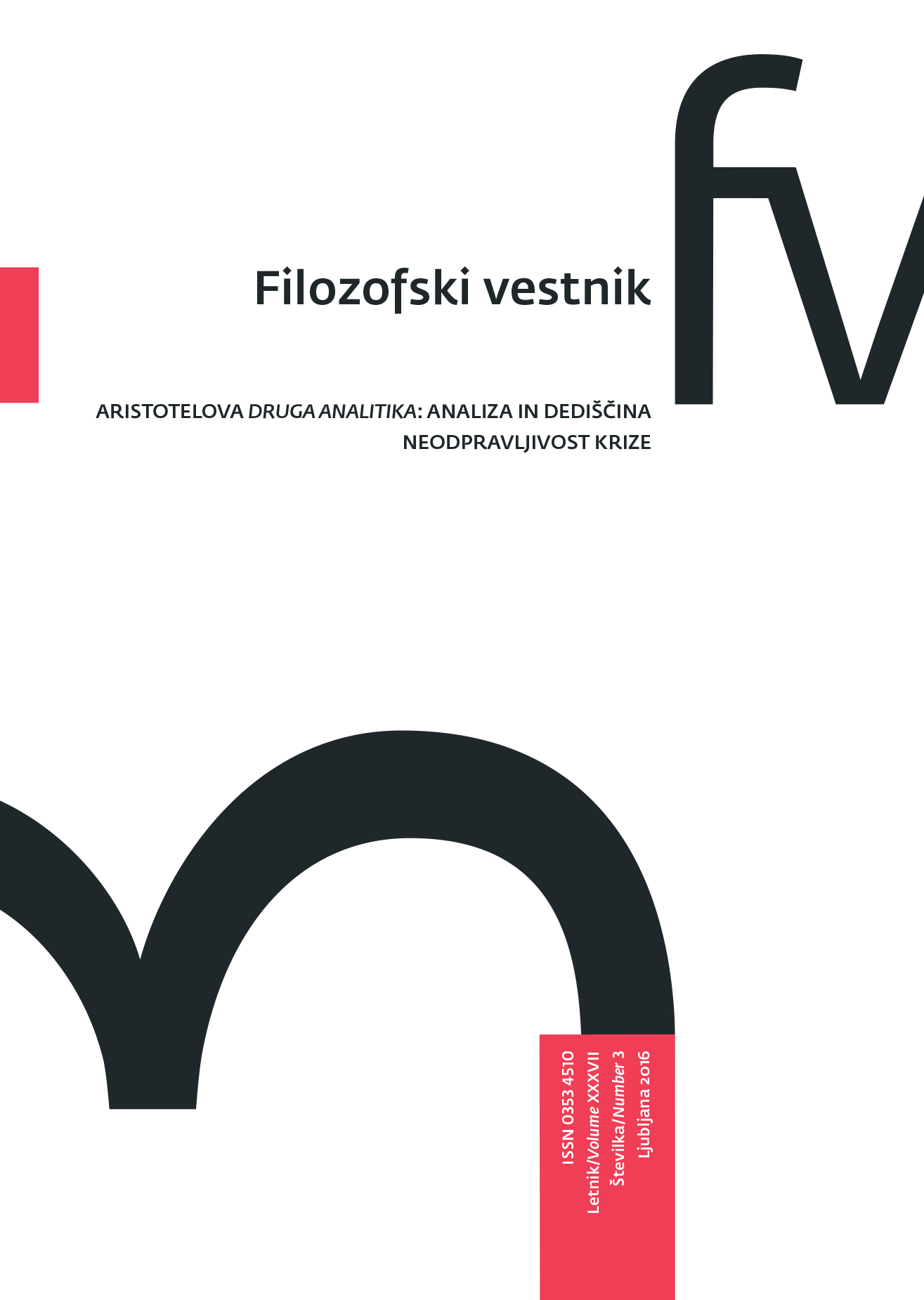Grossetestovo razumevanje »eksperimenta« v Komentarju aristotelove Druge analitike
Ključne besede:
Grosseteste, Aristotel, Druga analitika, izkustvo, preizkus (eksperiment), iluminacija, zgodnja moderna znanostPovzetek
Alistair C. Crombie v delu Robert Grosseteste and the Origins of Experimental Science 1100-1700 podeli Grossetestu zasluge za vpliven napredek v metodologiji znanosti in eksperimentalni praksi. Skozi Grossetestova dela želi pokazati, da moderna znanost izhaja iz srednjeveške znanosti in da je le-ta po svoji metodološki in filozofski inspiraciji srednjeveška iznajdba. Grossetestov Commentarius in posteriorum anayliticorum libros, predstavlja Grossetestovo metodologijo ved ali znanosti (scientia), prikaže vlogo matematike v naravoslovnih vedah in njegovo razumevanje izkustva in preizkusa (experimentum). Prispevek se osredotoča na zadnjo točko, na Grossetestovo razumevanje izkustva in preizkusa (experimentum). V nasprotju s Crombijem skuša avtorica pokazati, da Grossetestovega razumevanja izkustva in preizkusa, »eksperimenta«, ne moremo povezati s t. i. kontroliranim eksperimentom zgodnje moderne znanosti. Pri njem je namreč izkustveno, »eksperimentalno« opazovanje povezano z iluminacijo oz. razsvetljenjem.Prenosi
Podatki o prenosih še niso na voljo.
Prenosi
Objavljeno
2017-01-18
Kako citirati
Kodelja, I. (2017). Grossetestovo razumevanje »eksperimenta« v Komentarju aristotelove Druge analitike. Filozofski Vestnik, 37(3). Pridobljeno od https://ojs.zrc-sazu.si/filozofski-vestnik/article/view/4881
Številka
Rubrike
Aristotelova Druga analitika: analiza in dediščina
Licenca
Avtorji jamčijo, da je delo njihova avtorska stvaritev, da v njem niso kršene avtorske pravice tretjih oseb ali kake druge pravice. V primeru zahtevkov tretjih oseb se avtorji zavezujejo, da bodo varovali interese založnika ter da bodo povrnili morebitno škodo.
Podrobneje v rubriki: Prispevki





